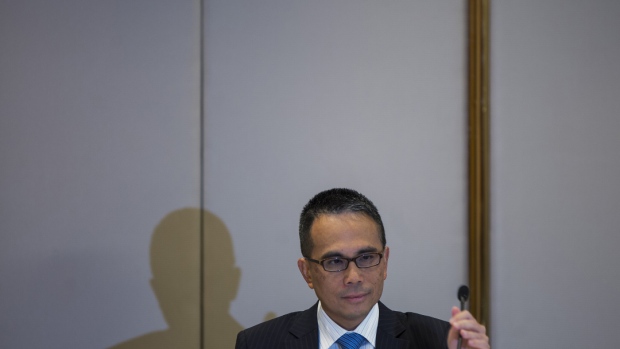Nov 20, 2018
CK Scraps Australia Deal in First Major Setback for Victor Li
, Bloomberg News

(Bloomberg) -- CK Group has formally walked away from its A$13 billion ($9.5 billion) bid to buy Australia’s biggest gas-pipeline operator, representing the first major setback for Chairman Victor Li since taking over the family empire from his father in May.
Li dropped his pursuit of APA Group on Tuesday, confirming the end of what became a doomed deal on Nov. 7, when Australia effectively said it would block the transaction on national-security grounds. Had the purchase gone through, Li, 54, would have gained control over pipelines delivering about half of Australia’s gas, kicking off his reign by making the biggest overseas purchase the Hong Kong group had ever done -- even under his deal-savvy father.
But the plan collapsed, underscoring how the world has changed since the days CK was gobbling up assets worldwide under the chairman’s father, Li Ka-shing, Hong Kong’s richest man. Go-to investment destinations such as Australia are no longer as welcoming as they once were, and many of the CK group’s main businesses are aging, with some facing the prospect of falling behind nimbler technology upstarts.
That all adds up to pressure on the new chairman. While Victor Li has said multiple times that he doesn’t plan to make drastic changes at CK, he may need to reconsider whether to maintain status-quo stability or chart a new path for growth in the decades to come.
CK gave up the deal hours after Treasurer Josh Frydenberg confirmed on Nov. 20 that the deal would be “contrary to the national interest,” and may create too much foreign ownership by a single company in the gas transmission business. CK bought Australian power distributor Duet Group last year.
Li has been blocked in Australia before. Prior to the Duet deal, the Australian government rejected CK Infrastructure Holdings Ltd.’s 2016 bid for electricity network Ausgrid. But at the time, the rejection was seen as being more directed towards government-controlled State Grid Corp. of China, which sought to buy a majority stake of the electricity distributor.
The rejections may cast doubt on CK’s ability to buy overseas utility and infrastructure companies that generate stable cash flows.
"We are going to see more of this, not just in Australia but also Europe and the U.S.," said Richard Harris, Hong Kong-based chief executive officer of Port Shelter Investment Management. The perception that the Chinese government exercises control over companies has become a problem, he said.
CK, which is based in Hong Kong, is a victim of such perception, Harris said. Hong Kong is part of China but it’s a specially administered region with its own mini constitution that allows for freedoms more comparable to the West than the mainland. Still, the city is increasingly facing perceptions that the line separating it from the mainland is blurring.
To contact the reporter on this story: Jinshan Hong in Hong Kong at jhong214@bloomberg.net
To contact the editors responsible for this story: Young-Sam Cho at ycho2@bloomberg.net, Dave McCombs
©2018 Bloomberg L.P.





